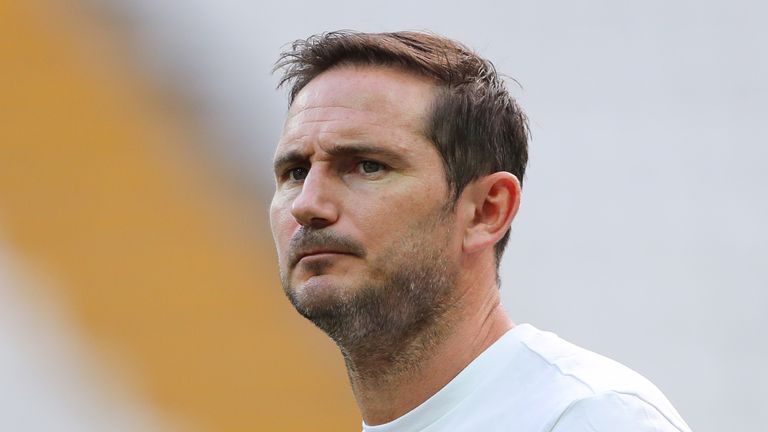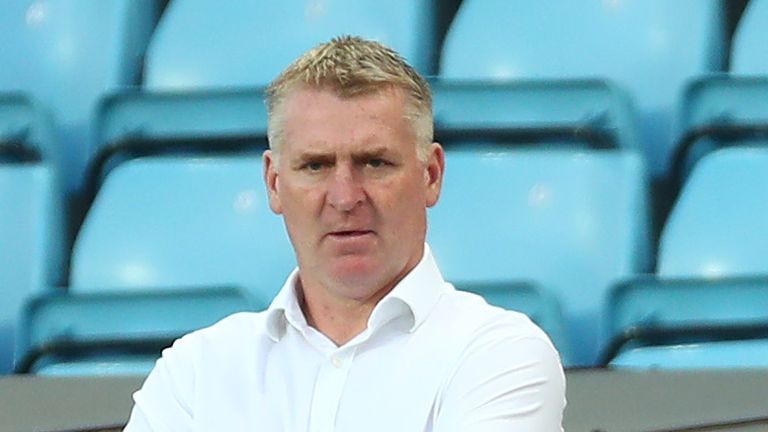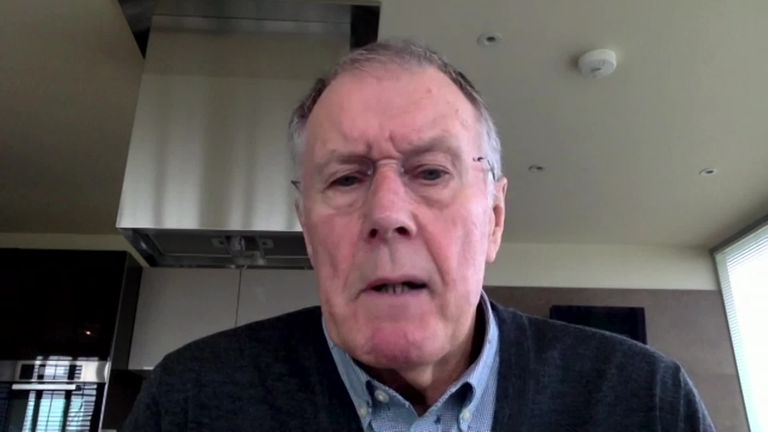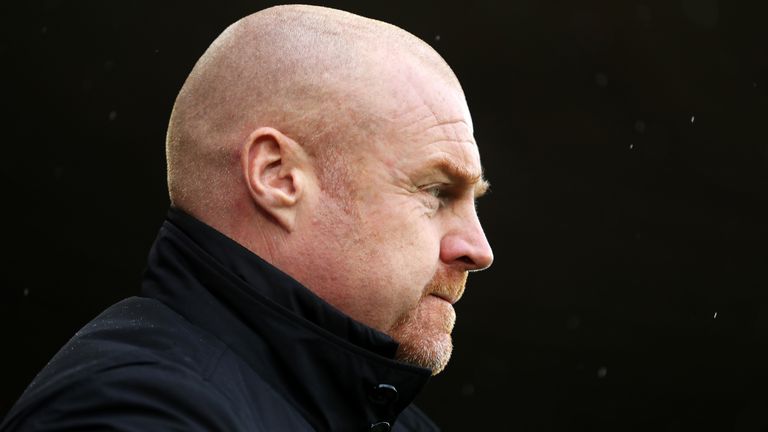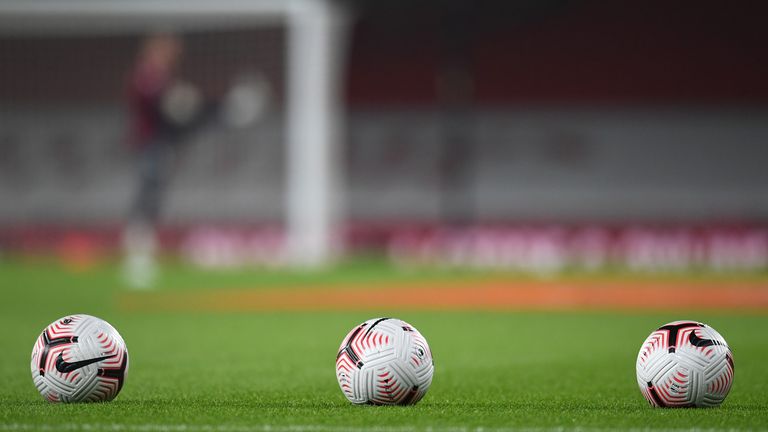Frank Lampard: Chelsea boss considers training changes amid dementia in football concerns
Chelsea boss Frank Lampard could change training regime over dementia concerns; Sean Dyche, Steve Bruce and Dean Smith among those with growing concerns; 1966 World Cup winner Geoff Hurst has offered to donate brain to dementia research
Friday 20 November 2020 14:19, UK
Frank Lampard has revealed he is considering adapting Chelsea's training over concerns with the number of former footballers developing dementia.
Nobby Stiles passed away last month, following Jack Charlton, Martin Peters and Ray Wilson as England 1966 Word Cup heroes to have died after suffering from the same illness, while Jack Charlton's brother Sir Bobby Charlton has also recently been diagnosed with dementia.
Another England World Cup winner, Sir Geoff Hurst, has called for heading to be banned from kids football and has offered to donate his own brain to dementia research.
Lampard is in favour of tougher rules in youth football and believes a similar approach could be adopted at the professional level, as long as it was universally agreed and adhered to.
Reflecting on the issue at his news conference on Thursday, the Chelsea boss said: "The rules need to be stronger to make sure we're not making younger children head it if they don't need to. In the development game, that's more than possible.
"We have to start with youth football. When children are developing, we can control the levels of training. Anything we can do to make things safer, we should.
"I think we can work up the pyramid. Already, I'm certainly considering it in terms of how we train here because of the seriousness of the issue.
"At the professional level, the small gains are huge and we need to make sure we're working under the same guidelines and trust each other that we are.
"At the moment, there are no guidelines. It has to be something that goes across the board."
Smith 'concerned' over dementia in football
Aston Villa manager and former defender Dean Smith, whose father, Ron, had the condition for six years before passing away in May after contracting coronavirus, revealed his concerns and says he would support changes, if further research shows a correlation.
"I think it's a question for a wider debate until we have the full science data about heading the ball," Smith said.
"I was a defender and my game was about heading a football. Yes it is a concern. If the data comes out and shows a correlation. We'd need to change something.
"I recently lost my father through covid but he also had dementia and he was not a footballer. Dementia and Alzheimer's is more prevalent throughout the world now unfortunately but I think if there is a correlation between heading a football and dementia then we need to do something.
"There's a lot of people putting in money and intelligence to find out if there is a correlation between heading and dementia. The balls were heavier back then. We are all saddened about the former players who are suffering with dementia at the moment."
Dyche: Kids should learn with sponge balls
Burnley manager Sean Dyche has echoed Lampard's view that changes are needed at youth level and said he has long argued for the use of softer balls for younger players.
"From working in the youth system at Watford, my view has always been that from a young age they should be learning with sponge balls," Dyche said.
"It's about technique. When you head the ball properly and appropriately you don't get the same knock-on effect.
"From the medical side, they'll know at what age it becomes appropriate to start using a real football.
"A lot is made of the game being different now, but if you look at the stats, you've still got to head the ball at some point from goal kicks or corners. Unless they're going to take that away but I don't think that would be a good spectacle.
"No one wants anyone having future problems and certainly not with the brain."
Bruce: It's a genuine concern that it can affect my era too
Alan Shearer's BBC documentary 'Dementia, football and me' investigated the issue in 2017. Newcastle boss Steve Bruce, a former centre-back, admits it remains a concern for him, too.
He said: "We've all seen the Alan Shearer documentary a couple of years and the death of Nobby Stiles has brought it back up again. The PFA need to look into it, we have the ability to do something about it.
"Heading is an art - it's a dying art and I'm all for the research. When I was a young player we headed a ball in a gym on a string and then repeated it for hours outside. It's a genuine concern that it can affect my era too."
FA 'leading the way' on dementia research, says chief
The Football Association is "leading the way" in researching the dementia risk to players, according to its chief executive Mark Bullingham.
Lawyers have confirmed that an action has begun on behalf of former players suffering with the neurodegenerative disease, who plan to seek compensation from organisations understood to include the FA.
Both it and the Professional Footballers' Association have again this week been accused of not doing enough to support ex-players or acting to protect players by introducing greater restrictions on heading in training.
Bullingham says although the FIELD study, which the FA and PFA co-funded, established an increased risk for players of dying from neurodegenerative disease, he says it is not entirely "clear-cut" what causes that increased risk.
"Dementia is a horrendous illness," he said. "My mother suffers from it. I see it first hand. It's horrible. In terms of
where I feel we are as an organisation, I feel like we've led the way with the FIELD research and we're funding a number of other projects at the moment.
"I don't think it's entirely clear-cut to identify the risk factors. But obviously heading could be one of those risk factors and that's why we put in place all the guidelines we have with regards to youth football, which I think are actually tougher than any other country in the world.
"Whilst it is a global problem, I do feel like we're leading the way and helping to determine what the cause of that issue could be."
